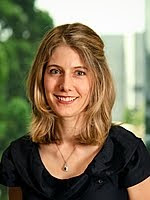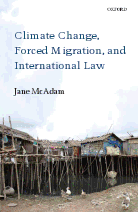

I’ve interviewed elderly men, women and their descendants on the tiny islands of Rabi and Kioa in Fiji who were relocated there after the Second World War (from present-day Kiribati and Tuvalu, respectively). I’ve met with communities directly affected by the impacts of disasters and climate change – such as people who’d left their homes in rural Bangladesh because incessant rain meant their rice crops were flooded all the time and they couldn’t make a living, and people in Tuvalu who had run out of drinking water because of a drought lasting three times as long as usual. Highly varied, wide-ranging and enlightening. I then had the opportunity to undertake my doctorate at Oxford University with Professor Guy S Goodwin-Gill, and that set me on my career path in academia.ĬFD: What have your experiences been like working in this field? My interest and determination to create change were cemented when I clerked for a judge after graduation and saw asylum claimants in court, often in tears as they recounted the trauma they had experienced. When I was at Law School in the 1990s, Australia’s draconian refugee policies were one of the most concerning human rights issues in Australia. My parents instilled in me a strong sense of social justice. In 2021, I was appointed an Officer of the Order of Australia (AO) ‘for distinguished service to international refugee law, particularly to climate change and the displacement of people’.ĬFD: What motivated you to pursue a career in the field of refugee law?

I am joint Editor-in-Chief of the International Journal of Refugee Law, the leading journal in the field. I have also advised governments on the creation of laws and policies to protect people displaced by the impacts of climate change, including in Australia, the Pacific, the United States, and the Americas. In 2017, I was appointed (with Guy S Goodwin-Gill) to develop UNHCR’s first institutional strategy on climate displacement, and in 2022, I had the opportunity to work with Pacific governments and communities to draft the first regional framework on climate mobility.

I research and write on international refugee law and forced migration, with a particular focus on displacement in the context of climate change and disasters. I am a Scientia Professor of Law and Director of the Kaldor Centre for International Refugee Law at the University of New South Wales in Sydney. Our team set with her for a short interview about her work, motivations, and thoughts on future developments in the field of forced displacement and refugee law.ĬFD: Can you tell us more about your work and research? McAdam is one of the members of the CFD Advisory Board and the leading thinker in the field of International Refugee Law. CFD Interview With Jane McAdam, Scientia Professor of Law and Director of the Kaldor Centre for International Refugee Law at UNSW Sydneyĭr.


 0 kommentar(er)
0 kommentar(er)
